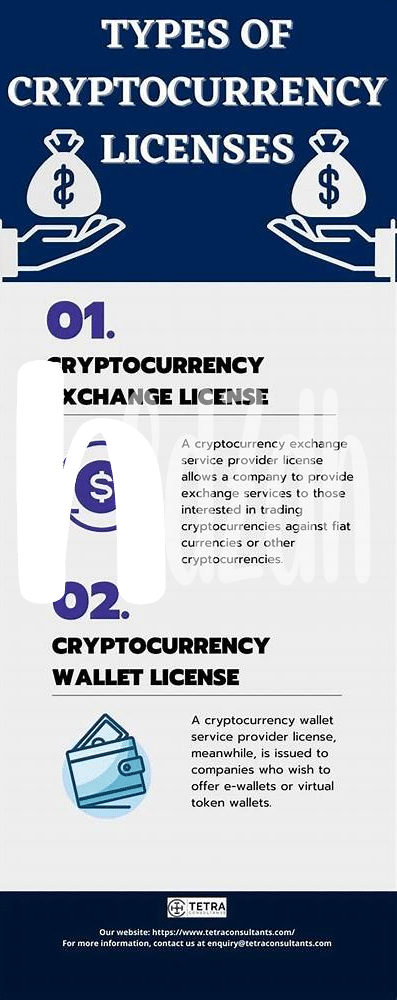Impact of Licensing on Crypto Exchange Security 🛡️

The security landscape of cryptocurrency exchanges undergoes a significant shift with the introduction of licensing requirements. This regulatory framework not only enhances the overall security protocols but also instills a sense of trust and reliability among users. By enforcing stringent security measures and compliance standards, licensed exchanges create a barrier to potential security breaches and unauthorized activities, ultimately safeguarding the funds and personal information of traders.
Furthermore, the impact of licensing on crypto exchange security extends beyond mere protection – it establishes a foundation for long-term trust and credibility within the market. Users are more likely to engage with platforms that adhere to regulatory standards, leading to a more secure and stable environment for trading and investment activities in the digital asset space.
Compliance Challenges for Cryptocurrency Platforms 💼
Compliance challenges can present significant hurdles for cryptocurrency platforms aiming to operate within regulatory frameworks. Navigating the intricate web of compliance requirements, ranging from anti-money laundering (AML) procedures to know your customer (KYC) protocols, demands meticulous attention to detail. Ensuring adherence to these standards while balancing the need for user privacy and security can be a delicate balancing act. The evolving nature of regulatory landscapes across jurisdictions further complicates matters, necessitating ongoing monitoring and adjustments to stay ahead of compliance challenges. In this dynamic environment, proactive engagement with regulatory authorities and industry bodies becomes crucial to addressing compliance issues effectively.
Market Entry Barriers Due to Licensing Requirements 🚧

Market entry barriers present significant challenges for aspiring cryptocurrency exchanges due to stringent licensing requirements. These regulations often demand high capital reserves, extensive documentation, and strict compliance standards, creating hurdles for newcomers without substantial financial backing or industry experience. Navigating through the complex application processes can also be time-consuming, further delaying market entry for potential exchanges. As a result, these barriers can limit competition, favor established players, and impede the entry of innovative solutions into the crypto exchange landscape.
Customer Trust and Transparency in Licensed Exchanges 👥

Customer trust and transparency are the cornerstones of licensed cryptocurrency exchanges. By adhering to licensing requirements, exchanges signal to users that they operate with integrity and accountability. This transparency fosters trust among investors and users, who are more likely to engage with platforms that prioritize regulatory compliance. Through clear communication and compliance with licensing frameworks, exchanges can enhance their reputations and attract a more discerning clientele. This commitment to transparency ultimately benefits the industry as a whole by raising standards and promoting a culture of trust. To learn more about cryptocurrency exchange licensing requirements in Nauru, visit cryptocurrency exchange licensing requirements in Nauru.
Regulatory Oversight and Its Impact on Operations 📝
Regulatory oversight plays a crucial role in shaping the operations of cryptocurrency exchanges. Compliance with regulations not only ensures a level playing field but also enhances accountability and transparency in the industry. By adhering to regulatory standards, exchanges are better equipped to safeguard user interests, mitigate risks, and foster long-term sustainability. Additionally, regulatory oversight helps to weed out fraudulent activities and promote a more stable and trustworthy ecosystem for all stakeholders involved. As the regulatory landscape continues to evolve, exchanges must adapt and innovate to meet the changing requirements while maintaining operational efficiency and customer satisfaction.
Future Trends in Licensing for Crypto Exchanges 🔮

The ever-evolving landscape of cryptocurrency exchanges is marked by a shift towards more stringent licensing requirements that aim to enhance transparency and security within the industry. As we look to the future, trends indicate a continued emphasis on regulatory compliance, with a focus on creating a level playing field for all participants. This shift is likely to drive further consolidation in the market, leading to heightened competition and improved standards of operation. Additionally, advancements in technology such as blockchain and smart contracts are poised to streamline licensing processes and offer greater efficiency in regulatory oversight. For more information on specific cryptocurrency exchange licensing requirements in different regions like Nigeria and Mozambique, check out the respective regulatory guidelines highlighting the nuances of operating within these jurisdictions.
